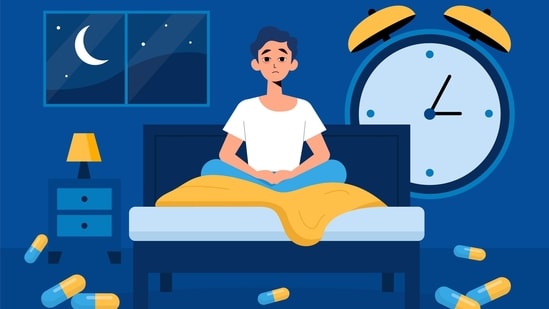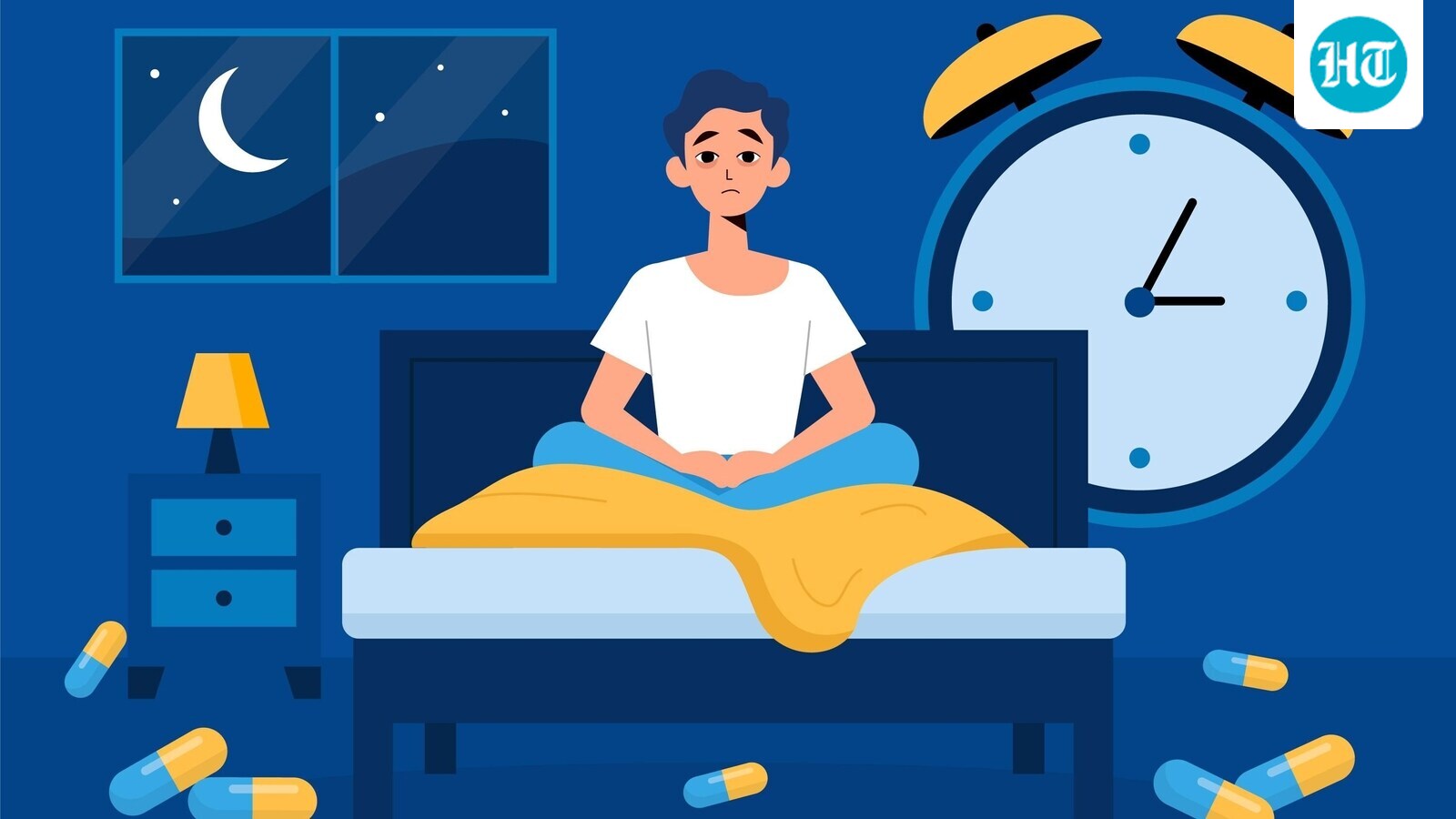A sleepless night might leave you groggy, but missing sleep for a few days can affect your body in surprising ways. From your metabolism to your mood, lack of rest can have serious effects. In his September 25 Instagram post, fitness coach Yash Vardhan Swami breaks down exactly what happens when you don’t sleep well for 1–4 days. (Also read: Fitness coach shares top 5 ‘supplements’ that can actually help you lose weight and boost health: ‘If you sweat a lot…’ )
 Poor sleep affects mental health, increasing mood instability and anxiety by 45%. (Freepik) What happens to your body when you miss sleep
Poor sleep affects mental health, increasing mood instability and anxiety by 45%. (Freepik) What happens to your body when you miss sleep
Day 1: Swami points out that after a single night of poor sleep, your reaction time can drop by 25 percent, which is comparable to being legally drunk.
Day 2: “Two days of poor sleep can reduce your working memory by up to 35 percent, slowing down decision-making significantly,” says Swami.
Day 3: He advises that by the third day, your cravings for junk food may rise by 40 percent, while your sense of fullness drops by 37 percent, making it harder to maintain a healthy diet.
Day 4: Swami notes that insulin sensitivity can decline by as much as 30 percent, which makes your body store fat more easily and can leave you feeling more lethargic.
Harmful impact of prolonged sleep loss
Day 5: He adds, “Mood instability and anxiety can rise by 45 percent, affecting your day-to-day functioning and overall mental health.”
Day 6 (for men): “Testosterone can drop by up to 20 percent, along with more cortisol spikes and slower recovery levels,” Swami explains.
Day 7+: Swami warns that after a week of poor sleep, brain waste clearance may drop by 65 percent, increasing Alzheimer’s risk, while immune function can decline by 50 percent, raising susceptibility to serious health issues like cancer.
Swami emphasises that regular, restorative sleep is crucial, not just for physical performance but also for mental health, metabolism, and long-term well-being.
Note to readers: This report is based on user-generated content from social media. HT.com has not independently verified the claims and does not endorse them.
This article is for informational purposes only and not a substitute for professional medical advice.

